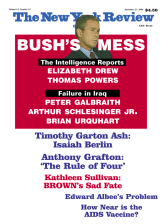I could have lived in the time of Constantine.
Three hundred years after the death of the Savior,
Of whom no more was known than that he had risen
Like a sunny Mithra among Roman legionnaires.
I would have witnessed the quarrel between homoousios and homoiousios
About whether the Christ nature is divine or only resembles divinity.
Probably I would have cast my vote against Trinitarians,
For who could ever guess the Creator’s nature?
Constantine, Emperor of the World, coxcomb and murderer,
Tipped the scale at the Council of Nicea,
So that we, generation after generation, meditate on the Holy Trinity,
Mystery of mysteries, without which
The blood of man would have been alien to the blood of the universe
And the spilling of His own blood by a suffering God, who offered Himself
As a sacrifice even as He was creating the world, would have been in vain.
Thus Constantine was merely an undeserving tool,
Unaware of what he was doing for people of distant times?
And us, do we know what we are destined for?
(This is the eleventh and concluding section of “Father Severinus,” a poem about a contemporary priest.)
This Issue
September 23, 2004



